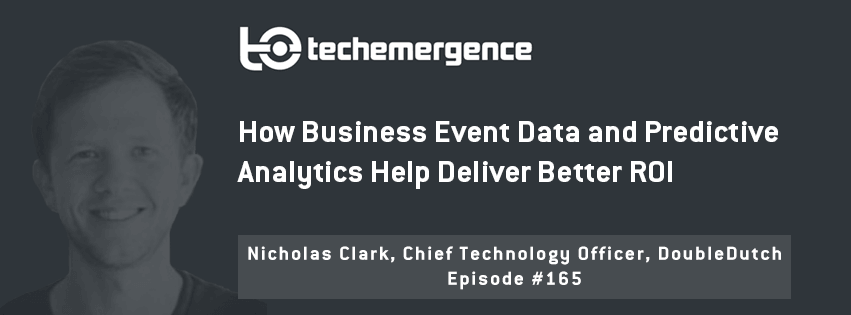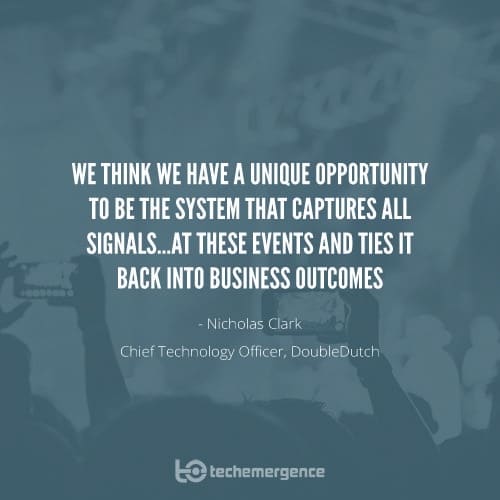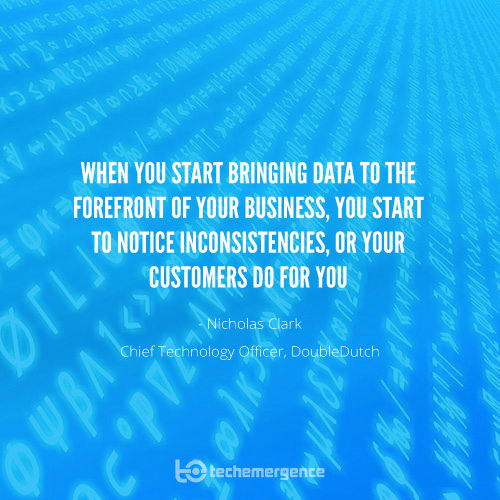
Episode Summary: A lot of companies in the San Francisco Bay area make the claim that they can do something great with data; many fewer are at a degree of scale to make this vision possible. Today we speak with Nicholas Clark, CEO of DoubleDutch, a company now powering thousands of events nationally and implementing machine learning into their operations, including predicting business results from actual attendees. DoubleDutch is at the beginning of its journey with predictive analytics, having to make hard choices around what sort of information and thought processes they need in order to use machine learning and remain profitable. Nicholas gives his perspective on these decisions, as well as how he thinks DoubleDutch’s efforts will impact the conference/event industry at scale.
Expertise: Software engineering and development
Recognition in Brief: Nicholas Clark is CTO at DoubleDutch, rising from his position as senior software developer in 2011. At DoubleDutch, Nicholas leads the architecture team that oversees all major technical decisions and has helped scale the company’s platform to support over 3000 conferences/events per year, and over 2 million active users. Previously, Nicholas worked as a software design engineer for Microsoft; he was also the founder of MobileSrc. Nicholas received his B.S. in Electrical Science and Engineering from Cornell University.
Current Affiliations: Chief Technology Officer at DoubleDutch

Interview Highlights:
(1:54) I’m interested in where you’re thinking about applying ML in the future, where it plays a role in Double Dutch
(3:00) What aspects of that (event attendance process) might you be looking to train models on…where are the aspects of the journey where you’d want machine learning to be implemented?
(5:50) For you…it’s not the same exact goal each time…would the goal eventually be able to compare a tradeshow event A with tradeshow event B and maybe glean lessons across the two?
(8:48) What have you learned now about what it’s going to take to meaningfully apply machine learning…what are the hard lessons about what it takes to glean ROI from AI that you’re having to realize for the first time in moving in this direction?
(11:31) Have there been any hurdles in what you’ve needed skill-set wise…are there folks on your team already capable; talent-wise, is this going to have to imply shifting…or does this meld into the rest of your technical endeavors?
(14:20) What has that preparatory groundwork (setting up pipeline for data) looked like…when you’re setting up your plumbing to deal with this data…in the real world?












